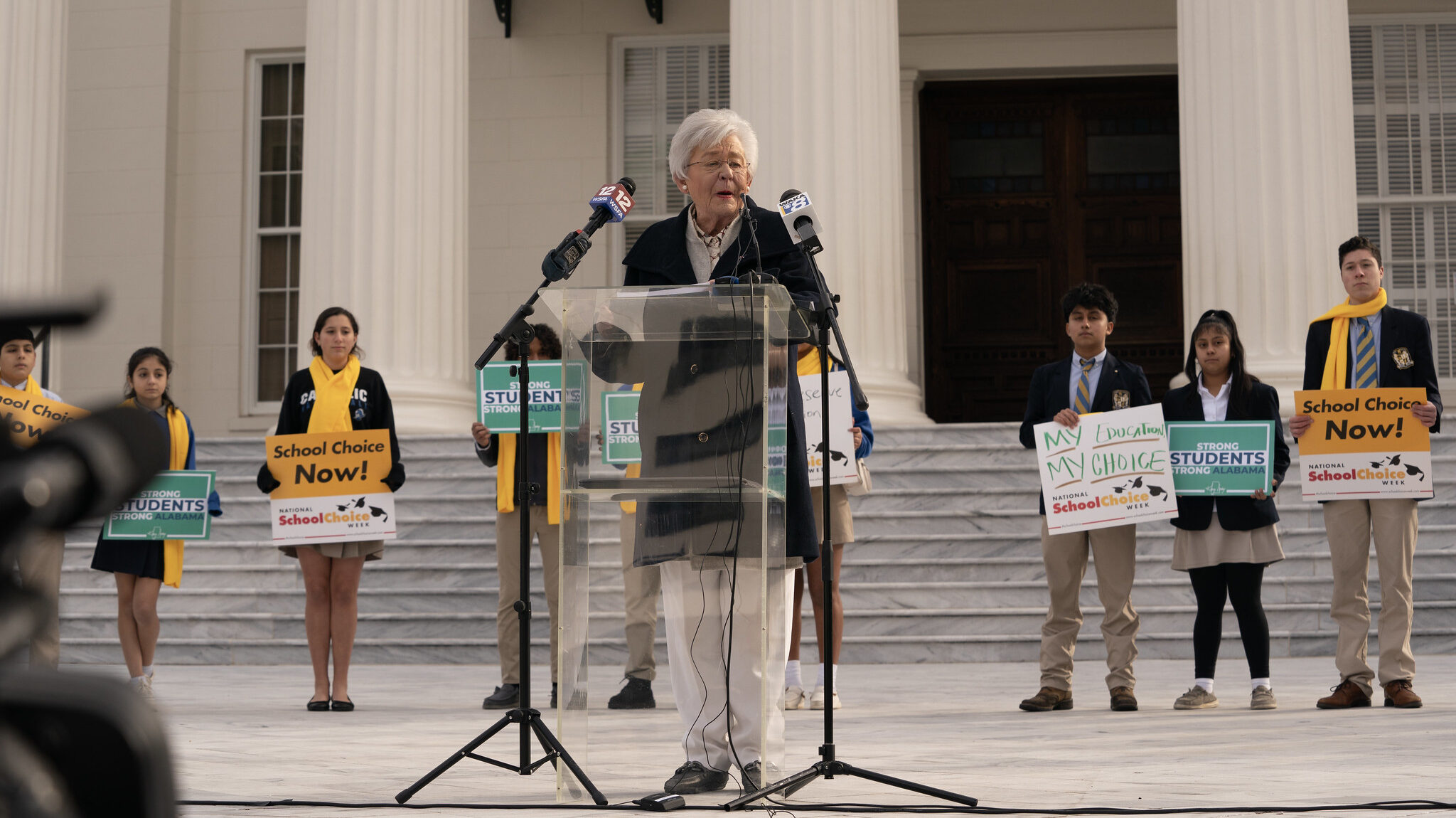Gov. Kay Ivey made the “CHOOSE Act” her number one priority for this legislative session, and now the plan is halfway to the finish line.
The Alabama House of Representatives on Tuesday voted 69-34 in approval of HB129, which would create a voucher-like system in which students would be eligible for up to $7,000 in tax credits toward education expenses at nonpublic schools. Six Republicans joined the Democrats in voting against the bill.
The bill looks slightly different than when it started after some concerns were raised by education groups and others about the long-term effects the program could have on the Education Trust Fund.
The House Ways and Means Education Committee amended the bill to require 90 percent of the previous years funds being allocated before the Legislature increase the appropriation each year. There can also be no more than $500 million in excess, accumulated revenue in the fund at any time.
Alabama Education Association’s Executive Director Amy Marlowe said the association remains concerned about the bill’s lack of a cap despite the AEA taking a neutral position on the bill during a public hearing last week.
“While AEA has worked with others in a good faith way to fashion a bill that does not hurt Alabama schools, it is important to note that Alabamians — including a strong majority of Republicans, Democrats, and Independents — are overwhelmingly opposed to unlimited funding being diverted from the Education Trust Fund for this program,” Marlowe said. “We want to continue to work to find common ground on this proposal as the bill moves to the Senate, but a cap must be included in the bill to protect the future of our local schools, or it should not pass.”
Gov. Kay Ivey and Republican leaders in the House celebrated the bill’s passge Tuesday evening.
“Today, Alabama took another important step forward in passing an effective and sustainable education savings account plan, the CHOOSE Act,” Ivey said. “I made it clear that providing Alabama families an education savings account option was my number one legislative priority, and I appreciate the Legislature for answering the call and addressing it early in the session. Thank you to Speaker Ledbetter and Representative Garrett for their leadership in the House on this important issue.”
House Democrats stalled for four hours on the floor, criticizing the bill as a potential destroyer of public education. Republican leadership said the bill will not impact public education and only provide an alternate path for participating students.
The bill includes a $100 million minimum appropriation for the program but does not give a limit to how much could eventually be spent to fund it.
In its first two years, only 15,000 students would be able to take part, which would make the maximum expenditures $105 million. In those first two years, only families that make up to 300 percent of the poverty level would be eligible for the program, with priority going to low-income families and students with disabilities first, as well as students of military families in low-performing public schools.
The program also allows up to $2,000 annually for educational expenses for homeschool students, limited to $4,000 per yer per family.
Assuming a first-grade student took advantage of the full $7,000 in his or her first grade year when the program would begin in 2025-2026, the student would benefit from up to $84,000 total throughout his or her education. A family with four children would get up to $336,000 throughout the education of all four children.
This is basically equivalent to the per pupil expenditures that the state spends on its public school students, but even proponents of the CHOOSE Act and similar programs in past sessions have said the majority of students benefitting from the program would be students who never have, or never would have, entered the public school system.
Conservative estimates suggest about 65,000 students are currently enrolled in nonpublic schools in the state. It is not immediately ascertainable how many of those students would qualify based on whether they specific private schools would comply and participate in the program. If all 65,000 accessed the full $7,000 in credits, it would cost $455 million per year.
Proponents have also estimated a 1 to 5 percent uptake from currently enrolled public school students. That could take the annual cost of the program north of $600 million.
State Rep. Danny Garret, R-Trussville, addressed concerns about the lack of a cap on the program by pointing out that the program is an appropriation of the Legislature and so cannot be funded without lawmakers agreeing on how much to fund the program each year. The only limitation is a requirement to fund the program at $100 million; if lawmakers don’t have the funds in future years, they can choose not to appropriate any additional money to the program.
Leaders have made it clear, however, that the program is intended to provide funding for all students who wish to pursue alternatives to public education.














































